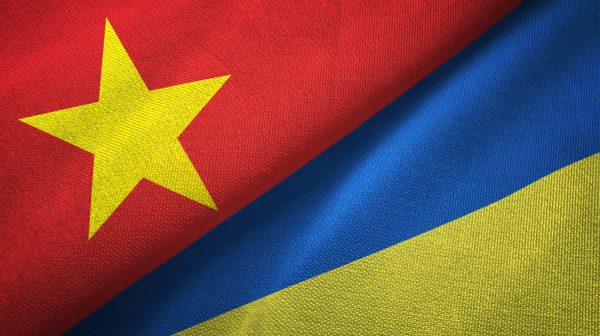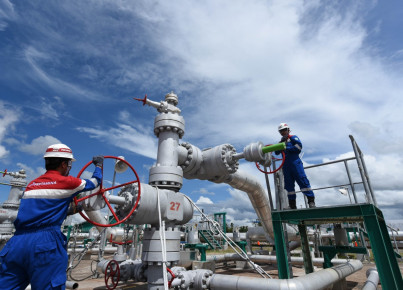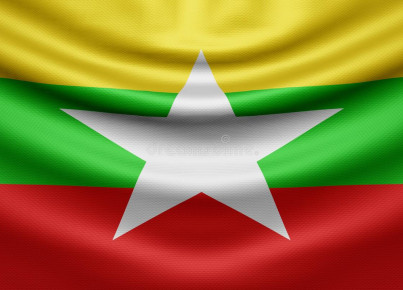In true bamboo diplomacy style, Vietnam had a modest reaction to the invasion of Ukraine. The echo of the conflict, however, was felt in Hanoi perhaps more than in Taiwan
Article by Lucia Gragnani
1979. China launches an offensive against Vietnam in response to Hanoi's opposition to the Khmer Rouge regime and the signing of the Soviet-Vietnamese partnership treaty. More than forty years have passed, but in Vietnamese school books there is still almost no trace of the Chinese attack. With the same reticence, Vietnam refrained from condemning Russia at the UN table, and opposed Moscow's exclusion from the Human Rights Council. This kind of strategic neutrality is not just pro forma, and it is so ingrained that it has managed to earn the bespoke name of bamboo diplomacy. Planted firmly in the ground, but nimble in flexing with the wind. In the countries of the Association of Southeast Asian Nations (ASEAN), this approach has resulted in modest reactions to the invasion of Ukraine.
The ambiguity of Vietnamese policy manifests itself in multiple ways. China is fighting with the United States for the role of first trading partner, showing itself capable of providing a response to Vietnam's growing demand for investment in infrastructure. For this reason, Hanoi has, like other ASEAN members, traditionally preferred to remain moderate towards Beijing, stalling so as not to be dragged down by American advances in China's containment policies. The United States has a strong interest in building a relationship with ASEAN in the area of maritime security as a key component of the Indo-Pacific Strategy, as announced in the communication issued ahead of the U.S.-ASEAN summit in May. After mending the wounds of war, Washington and Hanoi have established a solid but cautious cooperative relationship. But, with the ban on the export of lethal weapons to Vietnam valid until 2016, still not military.
The sector is Russian expertise, as is the production of oil extraction machinery. Relations between Hanoi and Moscow have been friendly for decades, rooted in traditional ties to the former Soviet Union. The 80 percent dependence on Moscow's supply of arms from 2000 onward has provided a cement to them. In late 2021, the governments of the two countries signed a new agreement to further expand military cooperation. Looking at Vietnam's posture toward Russia and the U.S., last year was emblematic. In the span of four months starting in April, there were successive visits by Russian President Vladimir Putin, Chinese Defense Minister Wei Fenghe, and U.S. Vice President Kamala Harris.
In bamboo diplomacy style, Vietnam had a modest reaction to the invasion of Ukraine. The echo of the conflict, however, was also felt in Hanoi and perhaps more so than in Taiwan. With the outbreak of war and subsequent sanctions complicating international trade with Moscow even for those countries that remained "friendly," the opportunities for access to Russia's arsenal diminished. Without being able to rely on its main strategic partner, Vietnam is now left with a bare flank.
This flank, in particular, is near the long east coast that looks out to the South China Sea, known in Vietnam as the East Sea. Ahead, a series of atolls and rock formations dot the maritime landscape, which is also overlooked by China, Taiwan, the Philippines, Brunei, Malaysia, and Indonesia. Each country claims sovereignty over a more or less large part of the South China Sea. In addition to being a key commercial hub through which passes a third of the world's maritime trade, the South China Sea has important reserves of gas in the subsoil. In recent years, it has become a place of friction for China-U.S. relations. For smaller players like Vietnam, navigating these choppy waters while remaining moderate is a strategic issue.
In 2016, the United Nations Convention on the Law of the Sea (UNCLOS) Tribunal ruled that not all land masses are entitled to island status. According to the Tribunal, there are, in fact, no formations permanently above water level in the South China Sea capable of supporting human life. The status of island would allow to exercise an exclusive economic zone (EEZ) of 200 nautical miles and conduct underground explorations. Maritime claims, however, are not only a matter of strategy, but also of politics and sovereignty. Islands or not, the ambitions of neighbors have not changed.
Of these, Beijing is the most problematic neighbor. Indeed, China claims the entirety of the South China Sea's rock formations and their corresponding waters based on the historic U-shaped line. This imaginary line encompasses the entire sea mass, and largely overlaps with Vietnam's claims of territorial sovereignty. These disputes are still the main source of tension between Beijing and Hanoi. In 1974, China occupied the formerly Vietnamese Paracelsus Islands after a clash that left dozens dead. In 1988, another clash at Johnson Reef in the Spratlys left about 70 people dead. More recently, in 2014 the movement of the Chinese oil rig Haiyang Shiyou 981 near the Paracelsus Islands had generated protests in Hanoi, and made one imagine an early parallel to the annexation of Crimea. Vietnam reacted in a composed manner to Chinese provocations. Damaging the relationship with Beijing over rocks in the South China Sea would have more costs than benefits.
When, after February 24, Beijing announced new military exercises near the Vietnamese coast, the sound of strikes in Ukraine seemed closer. In the security sector, it is necessary to expand the portfolio of partners, but embracing Washington would expose the country to possible repercussions on relations with China. At the same time, breaking away from Moscow after decades of near-monopoly proves difficult. Russia has stated that it is planning military exercises with its ASEAN partner by the end of 2022, and Hanoi has not retracted. Vietnam's strategic ambiguity allows for multiple partners, and the centrality given to the South China Sea issue at the latest meeting between Indian Prime Minister Narendra Modi and Vietnamese Communist Party Secretary Nguyễn Phú Trọng is no accident. Getting closer to India, however, does not mean getting closer to QUAD, and while the Vietnam-India strategic partnership is strengthened and the air in the South China Sea becomes tense, Hanoi and Beijing congratulate each other on 72 years of diplomatic relations and promise to strengthen cooperation. Vietnamese bamboo also endures in salt water, but it remains to be seen how long this ambiguity will be sustainable.






